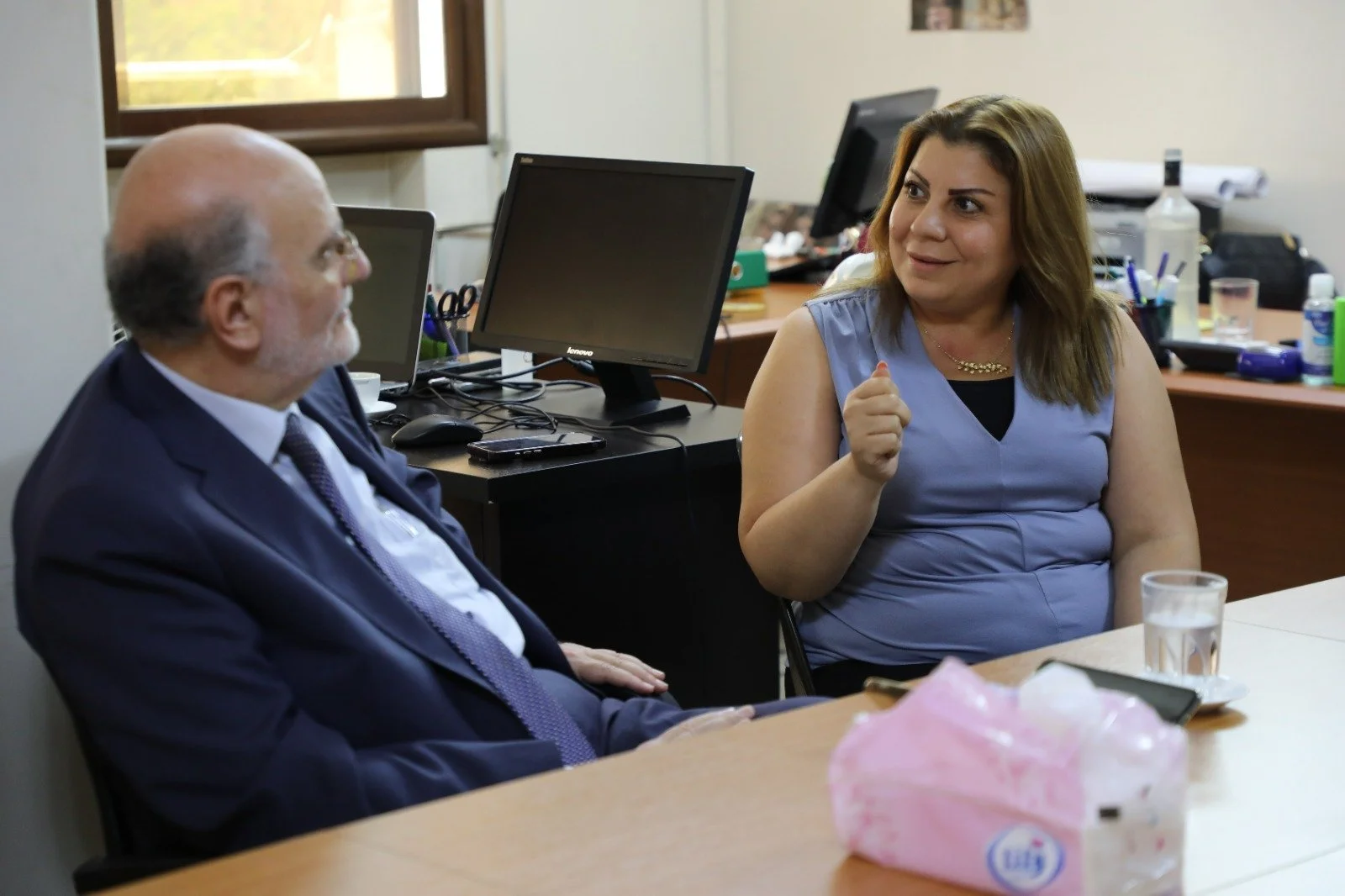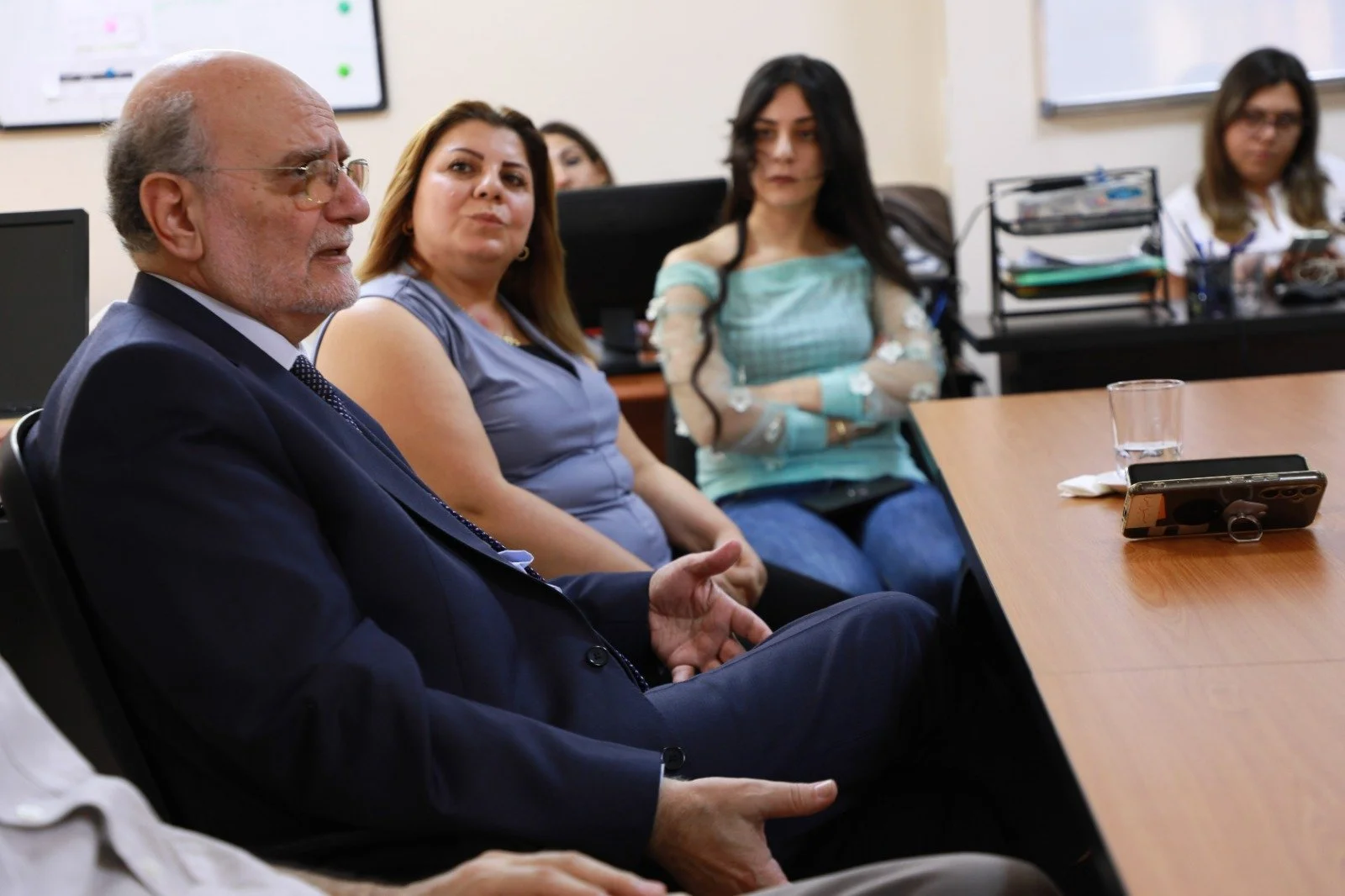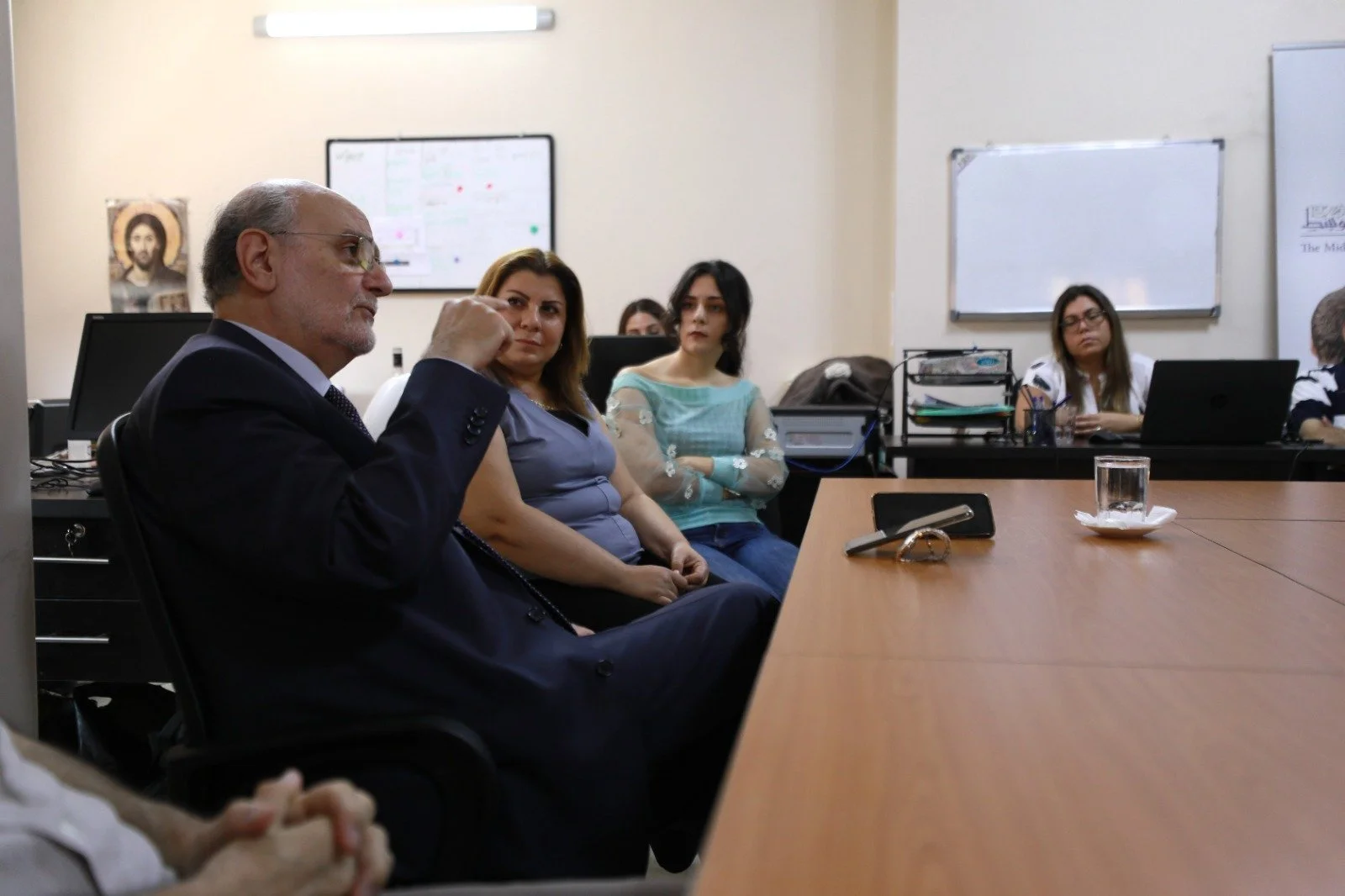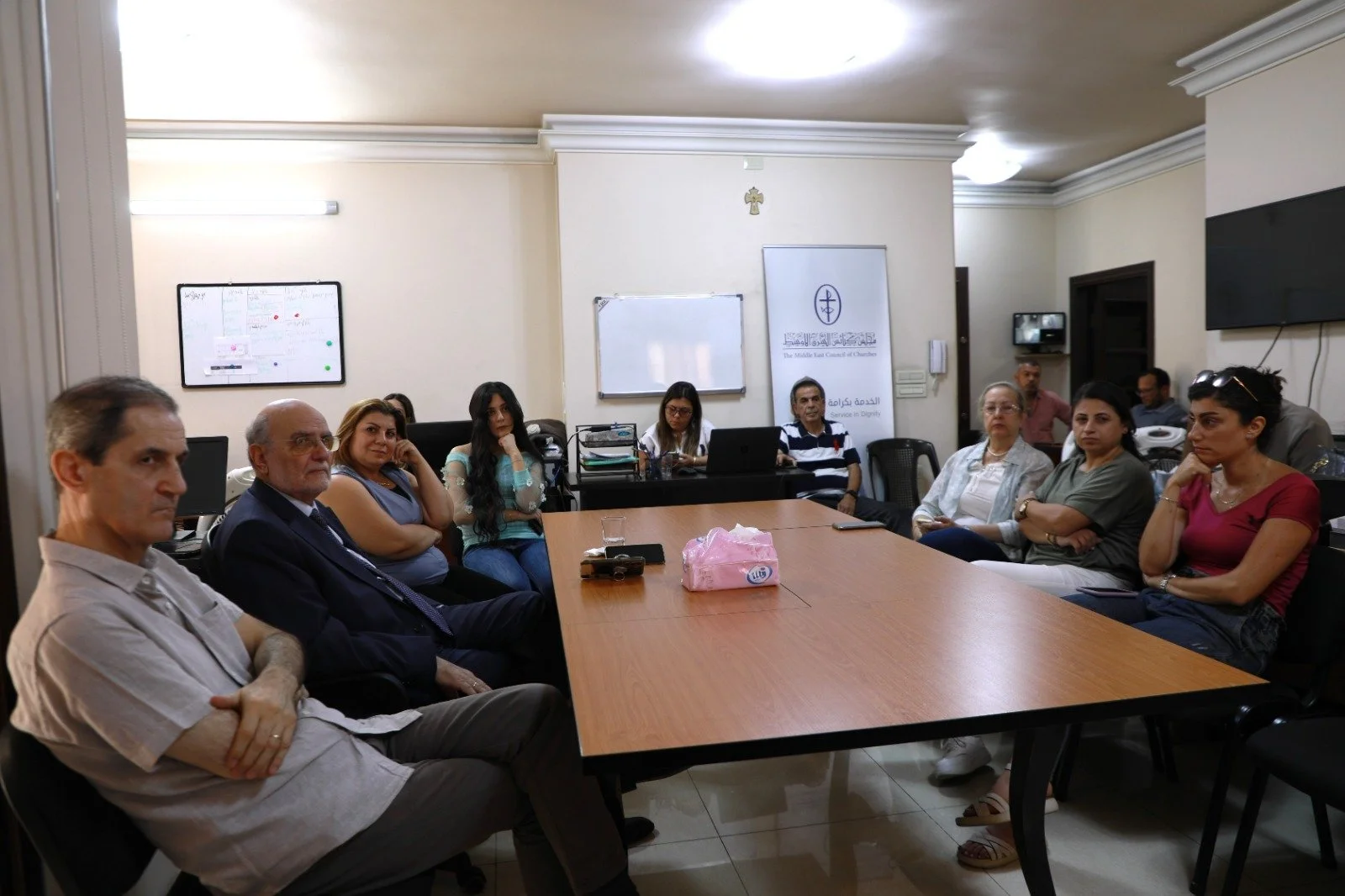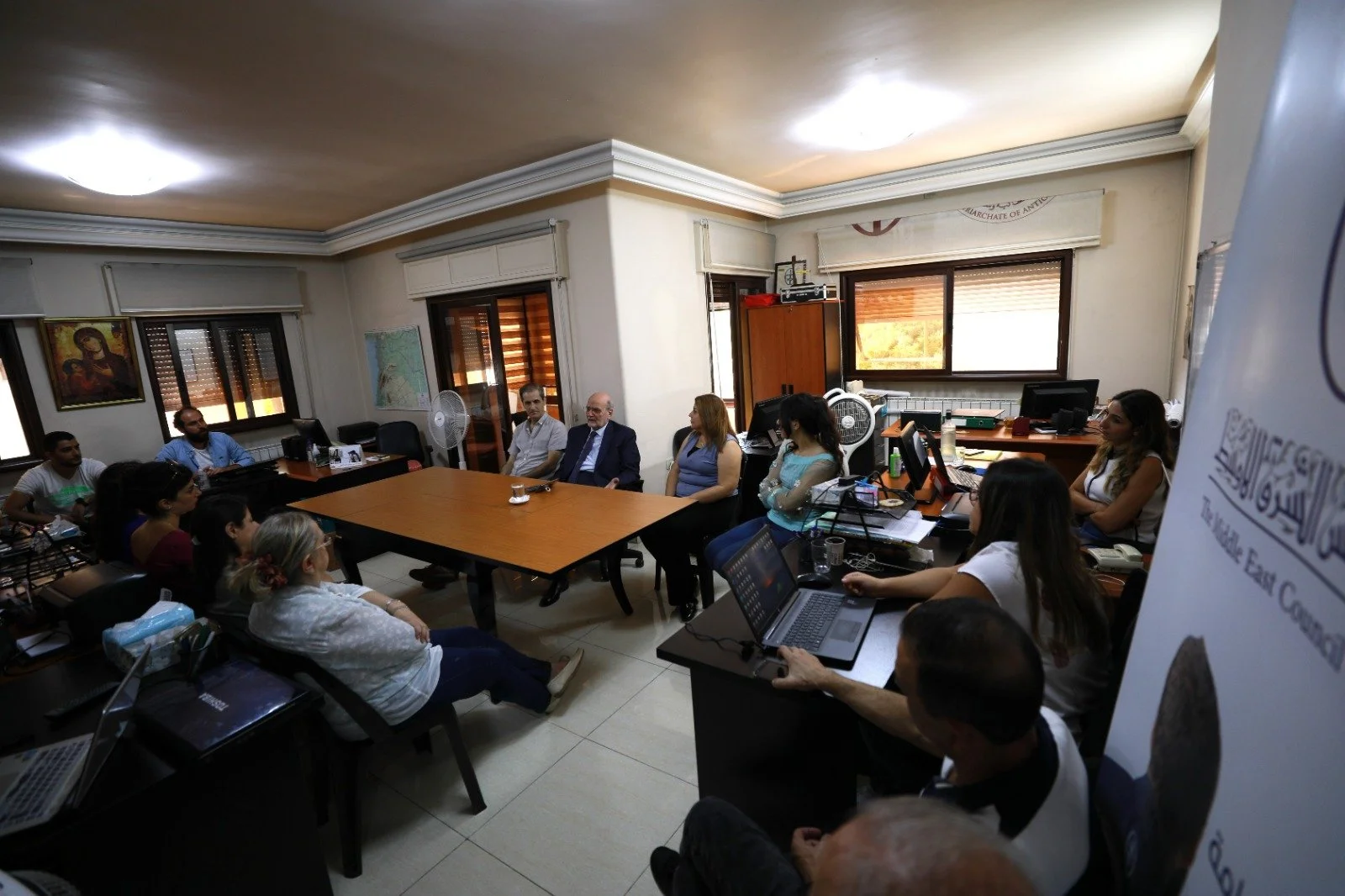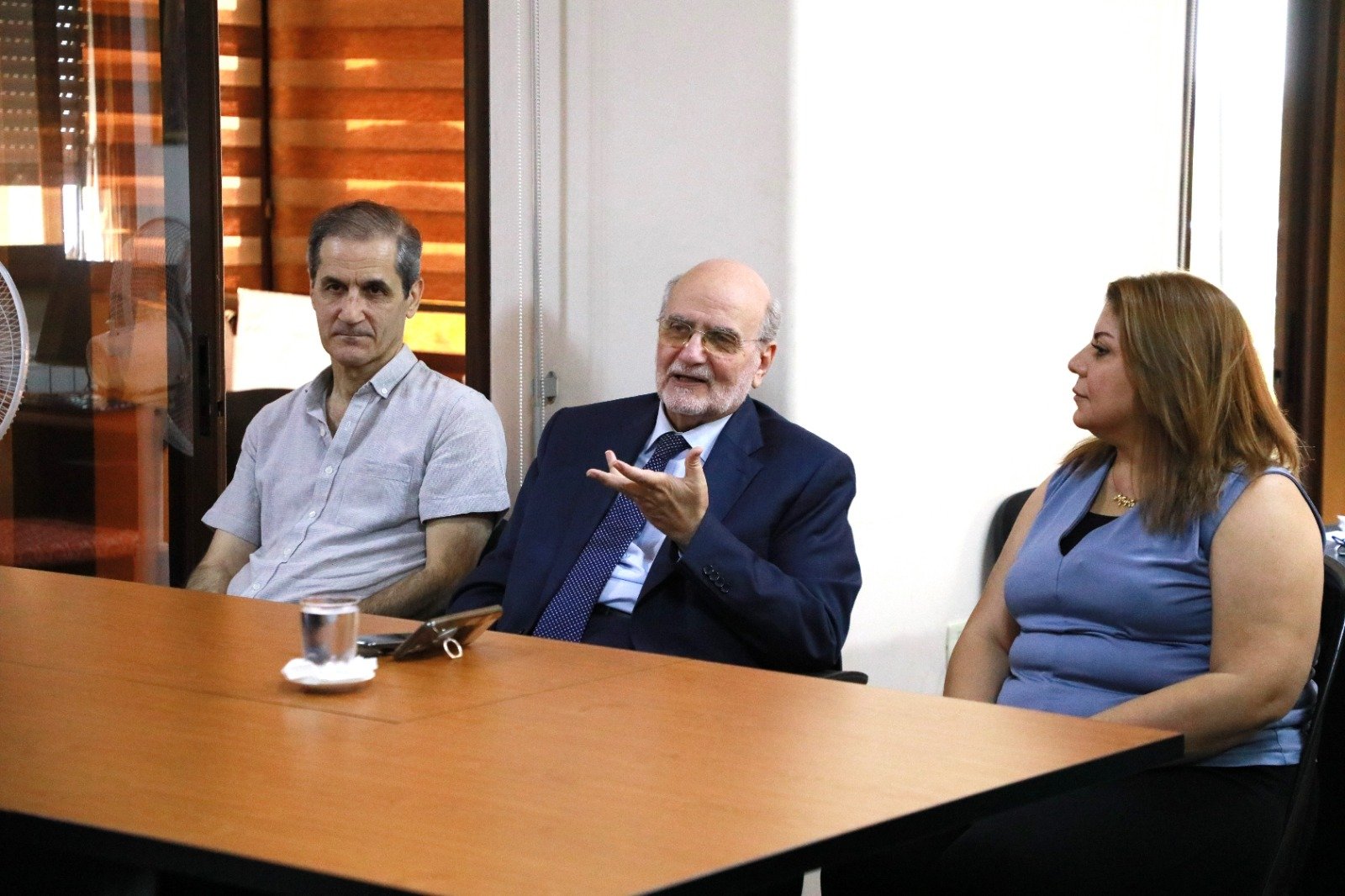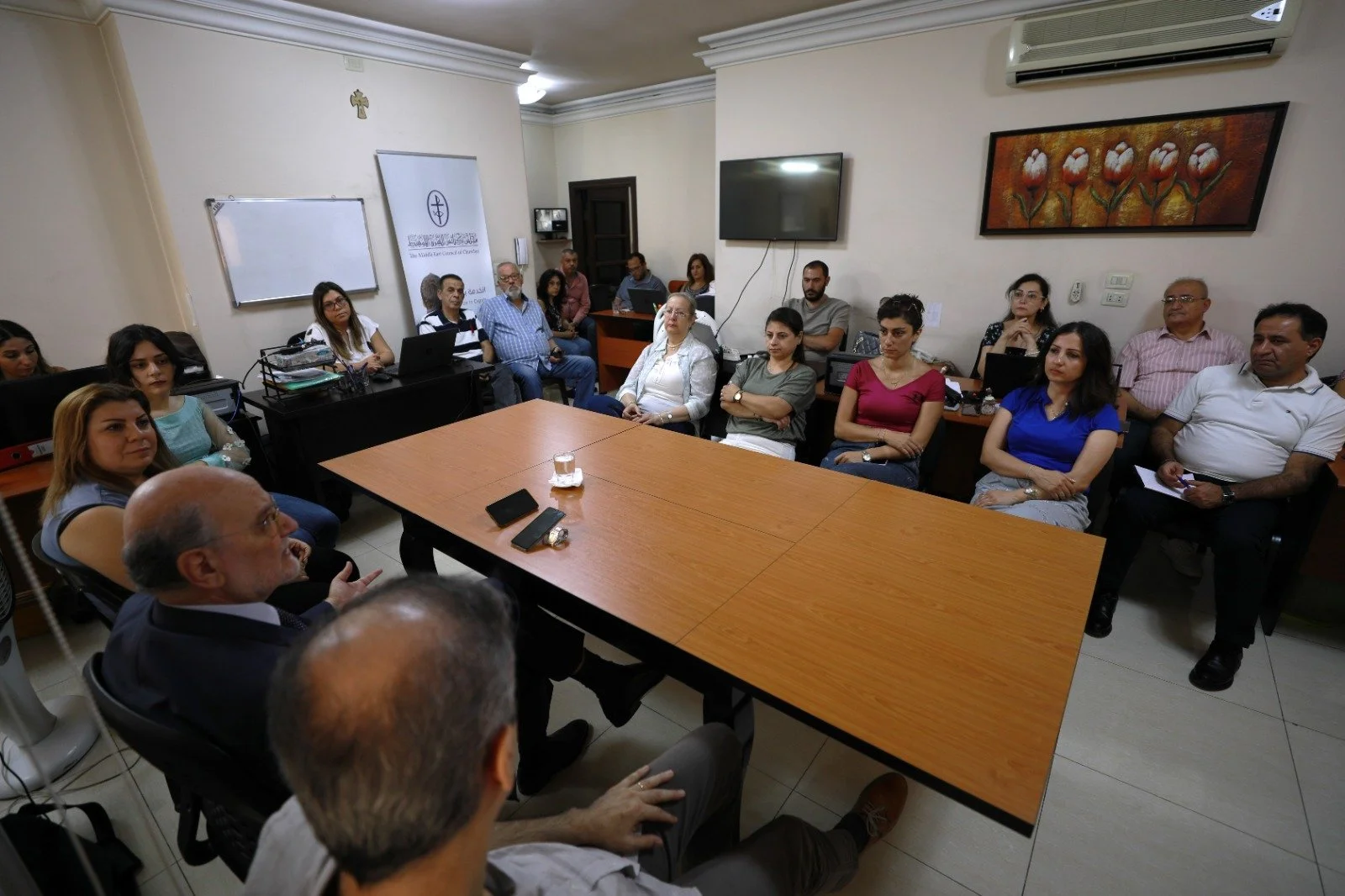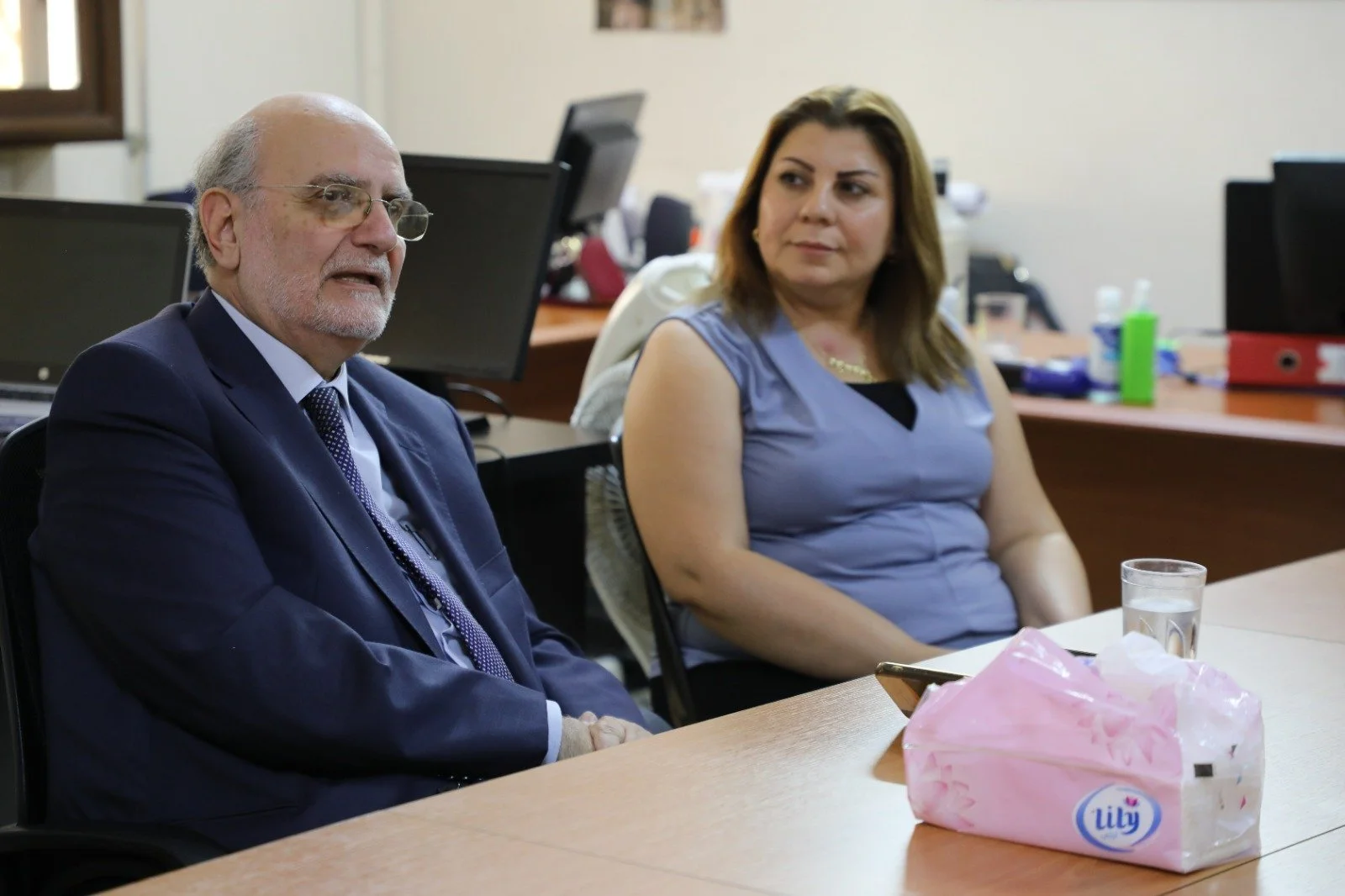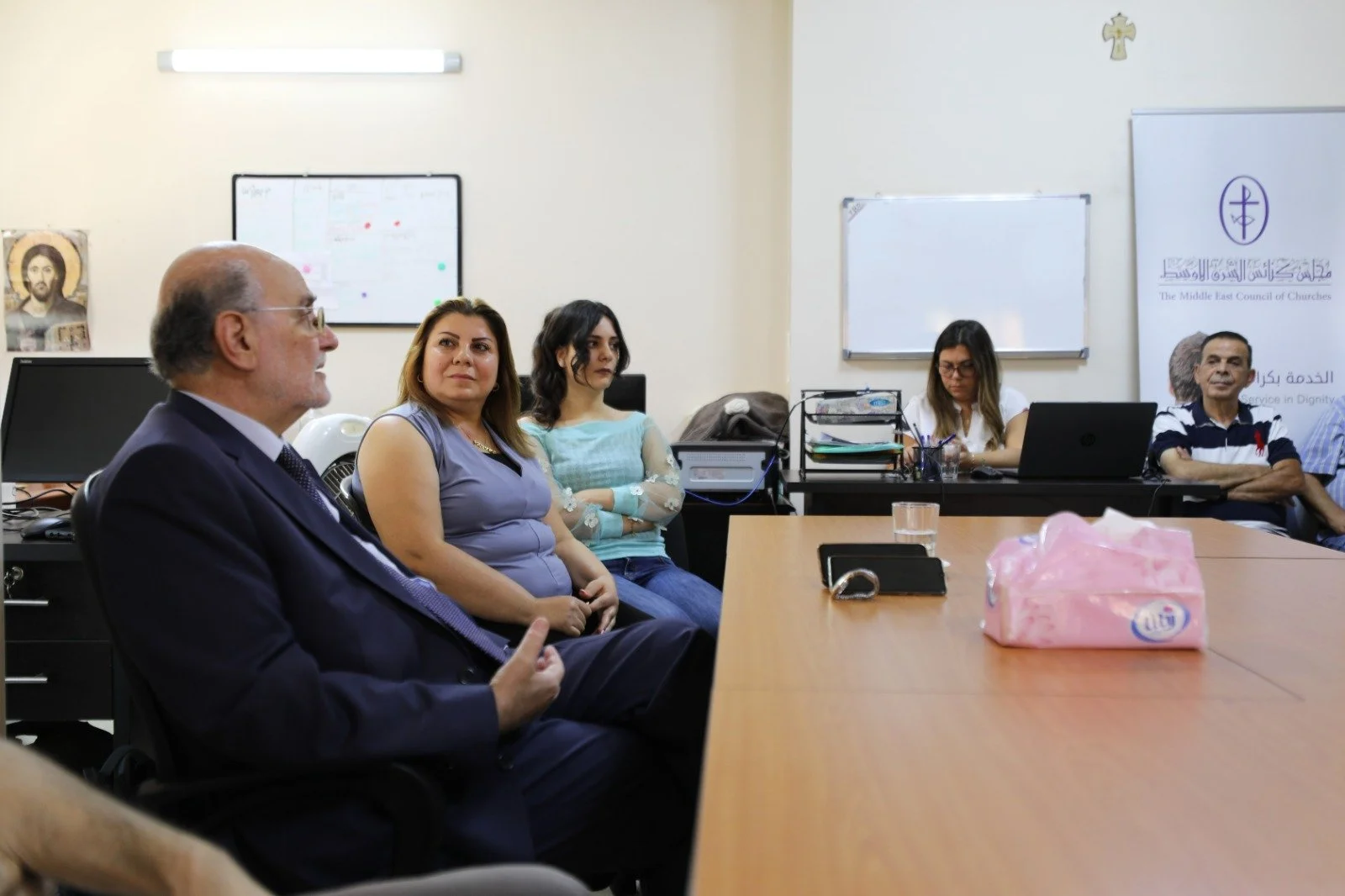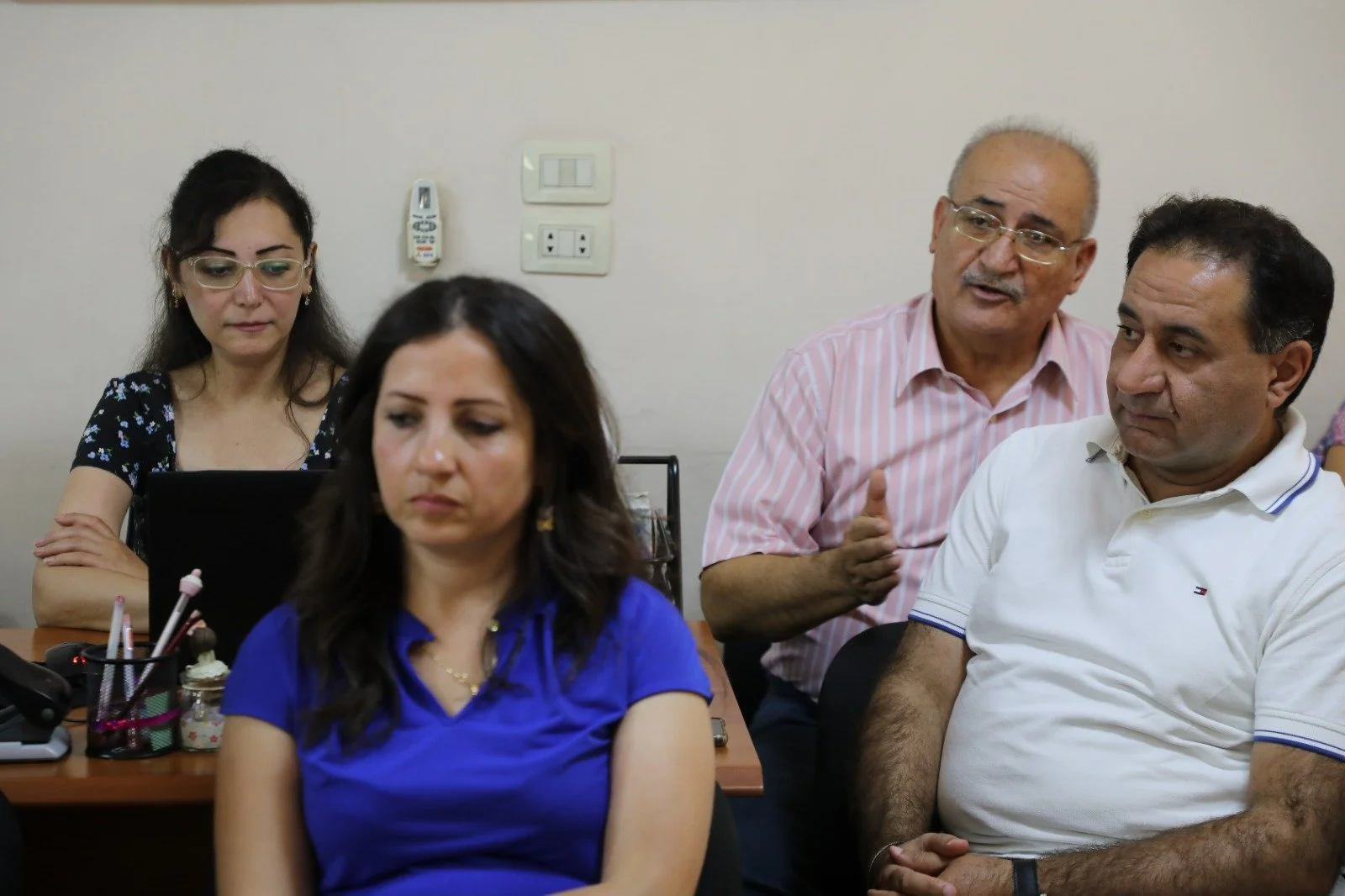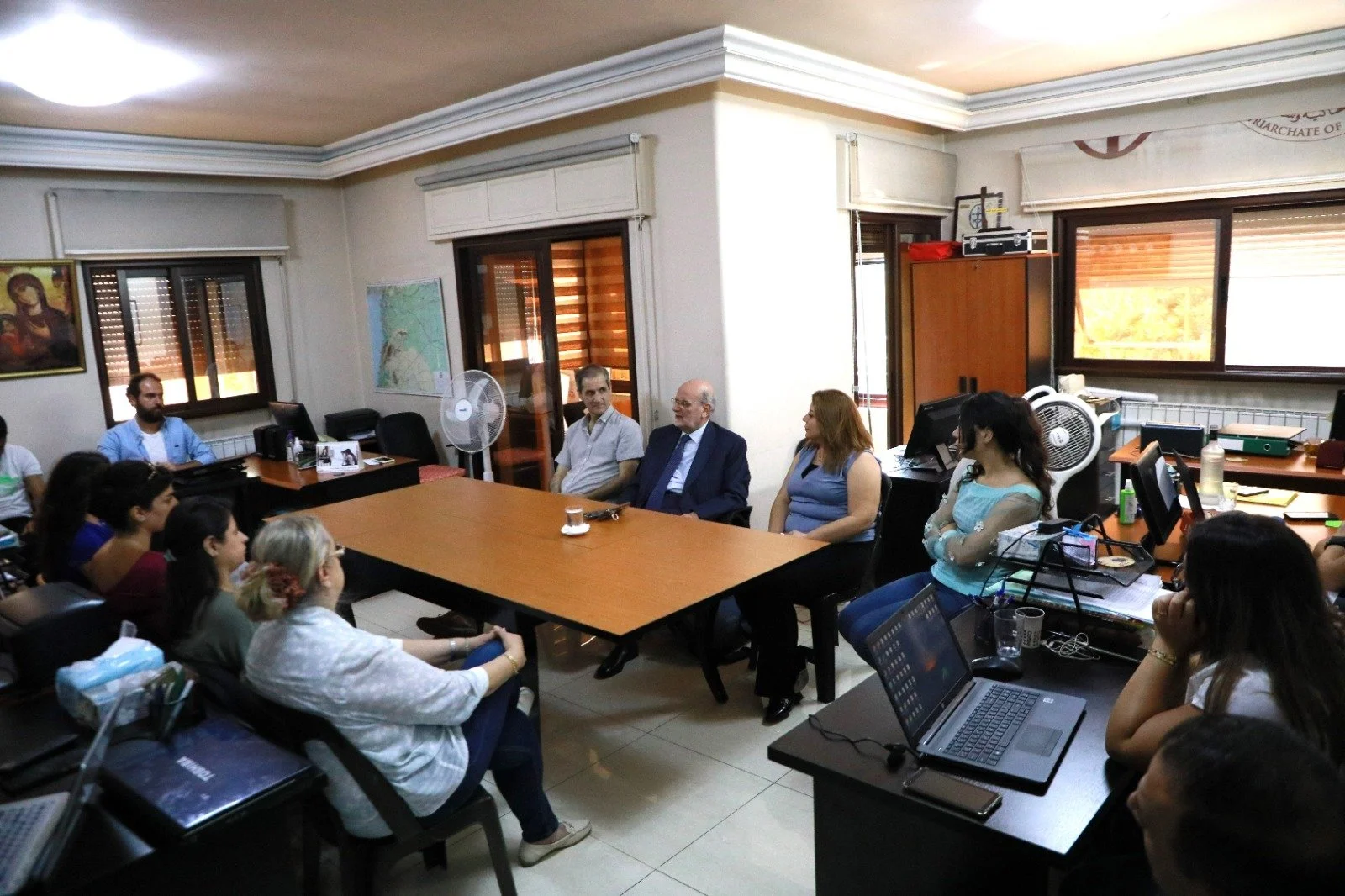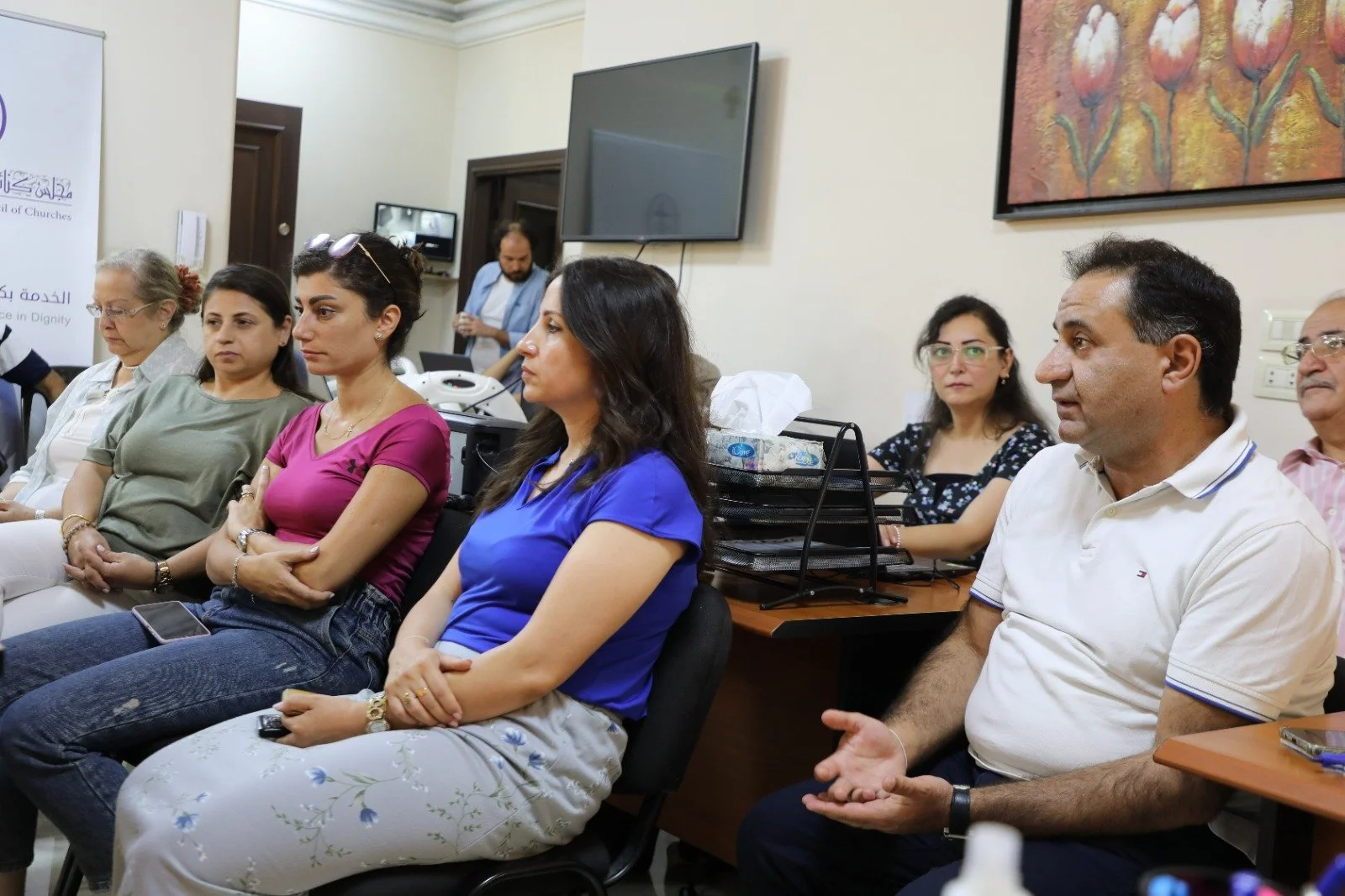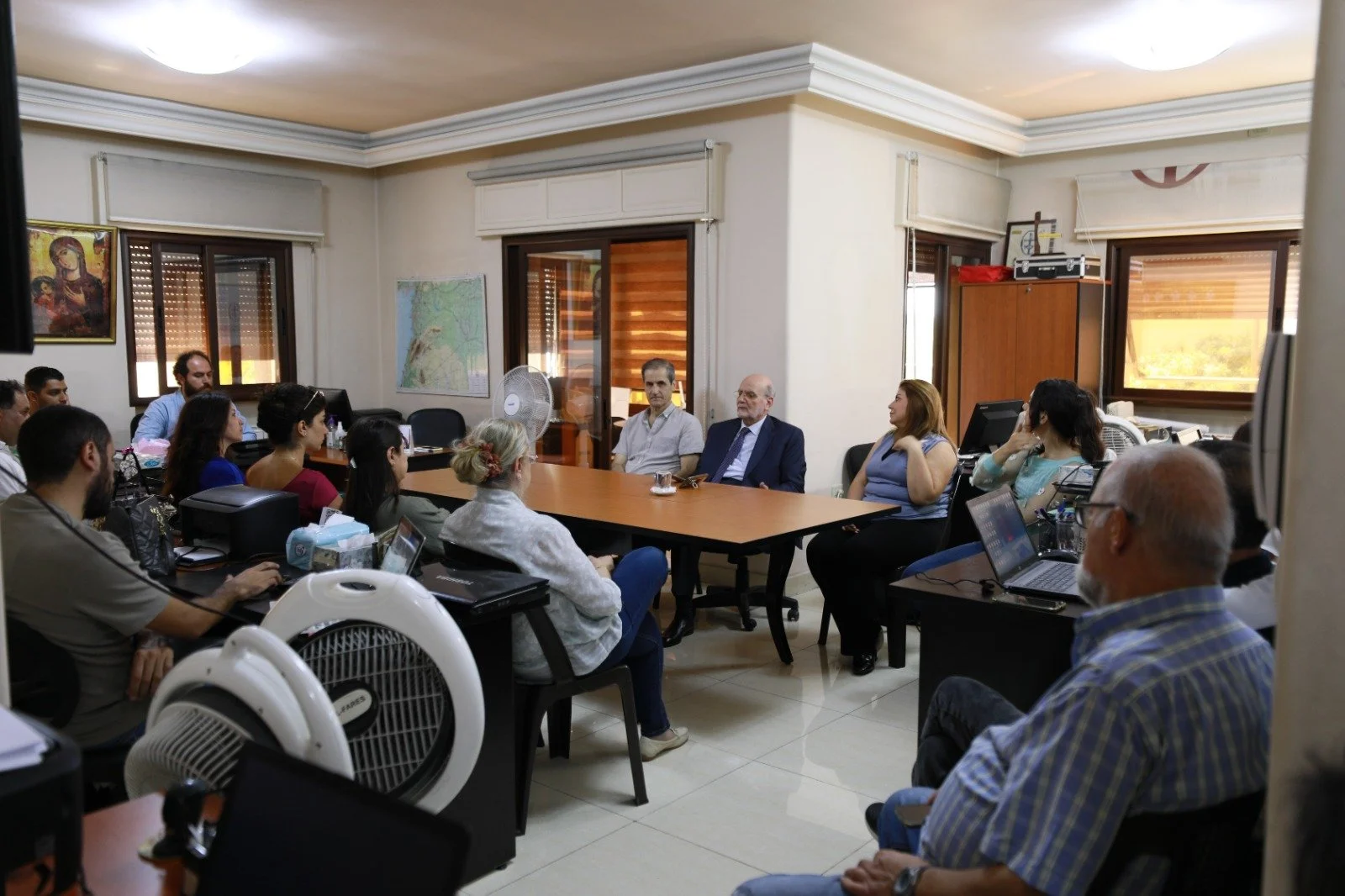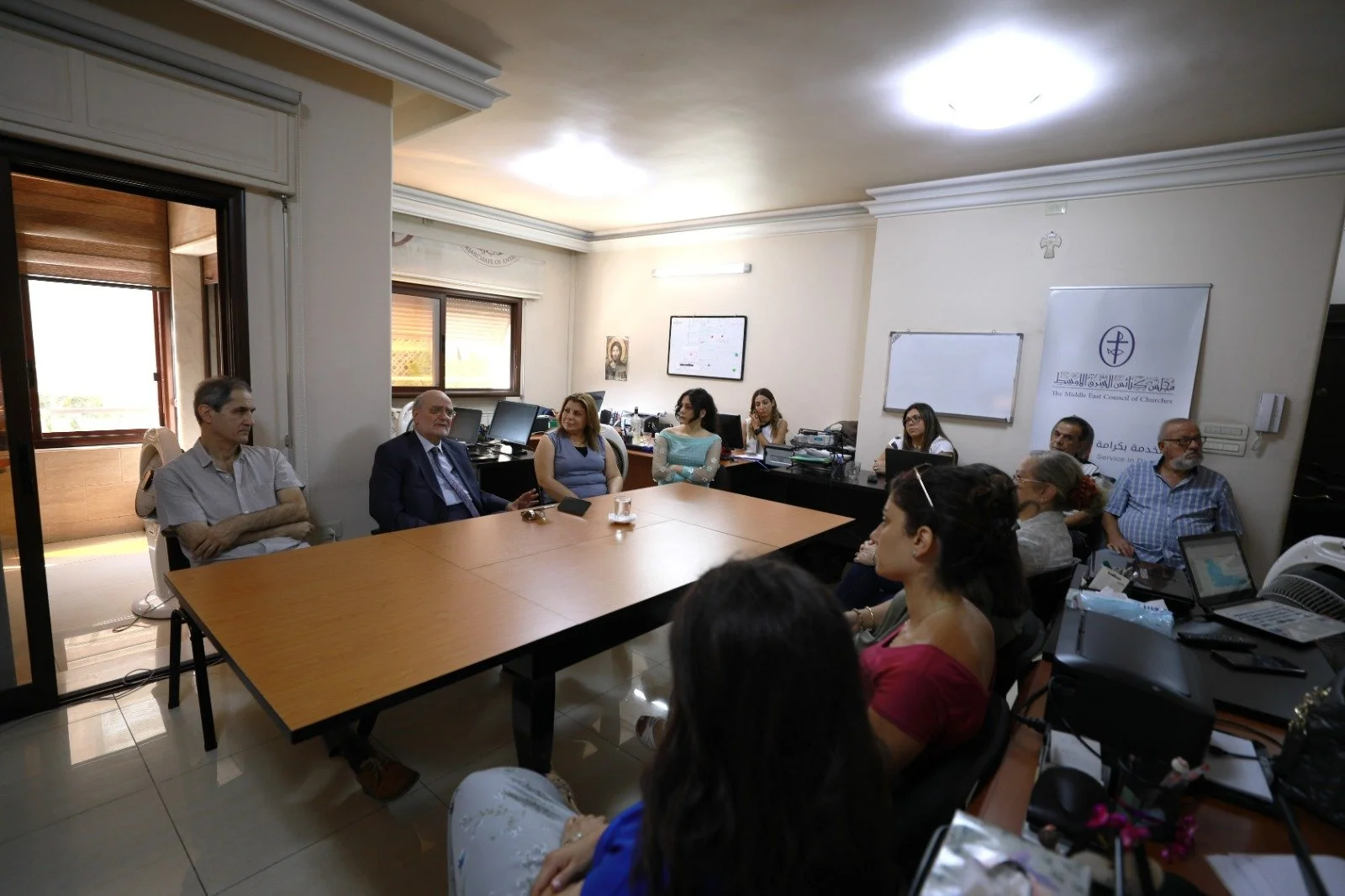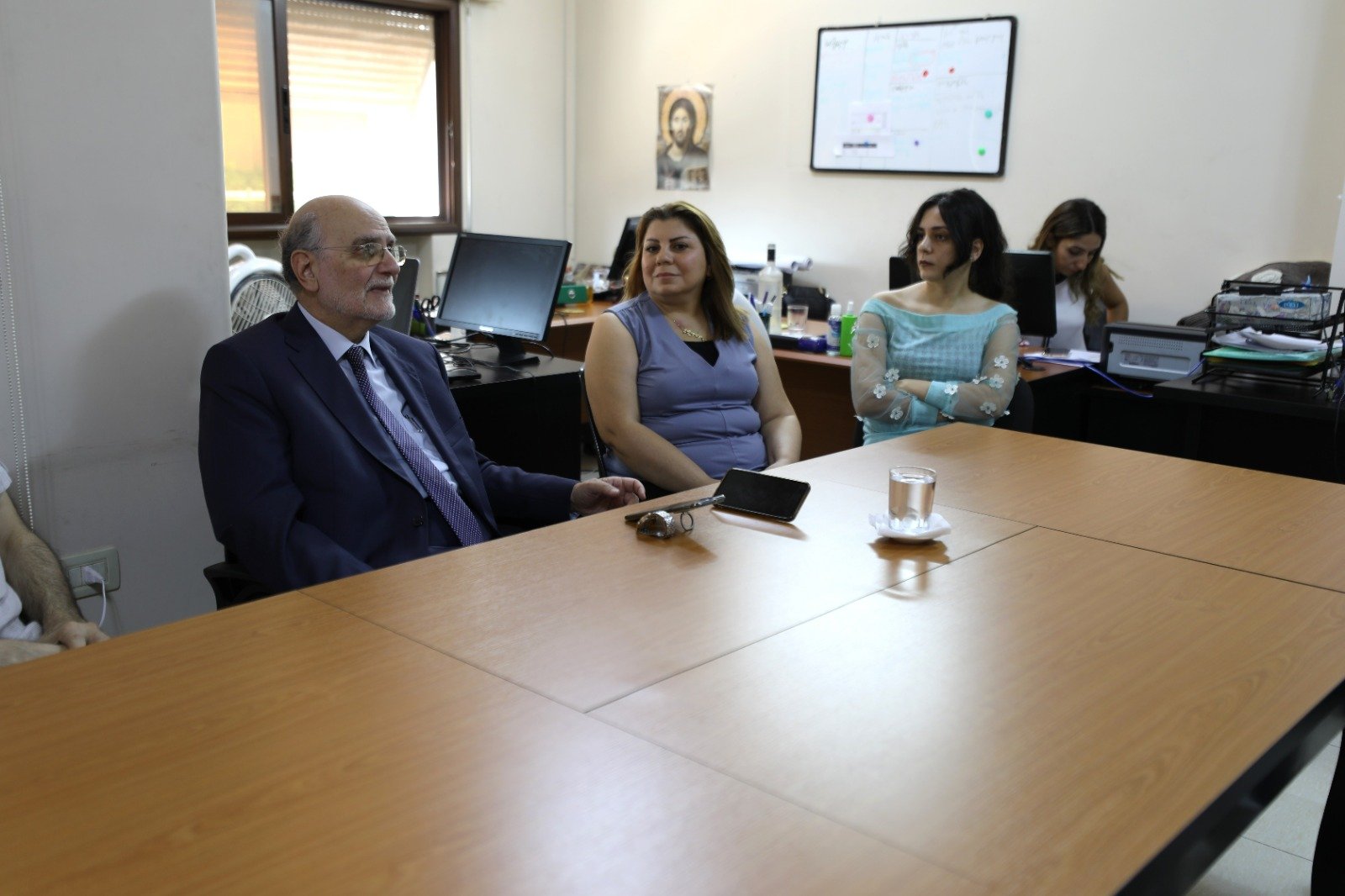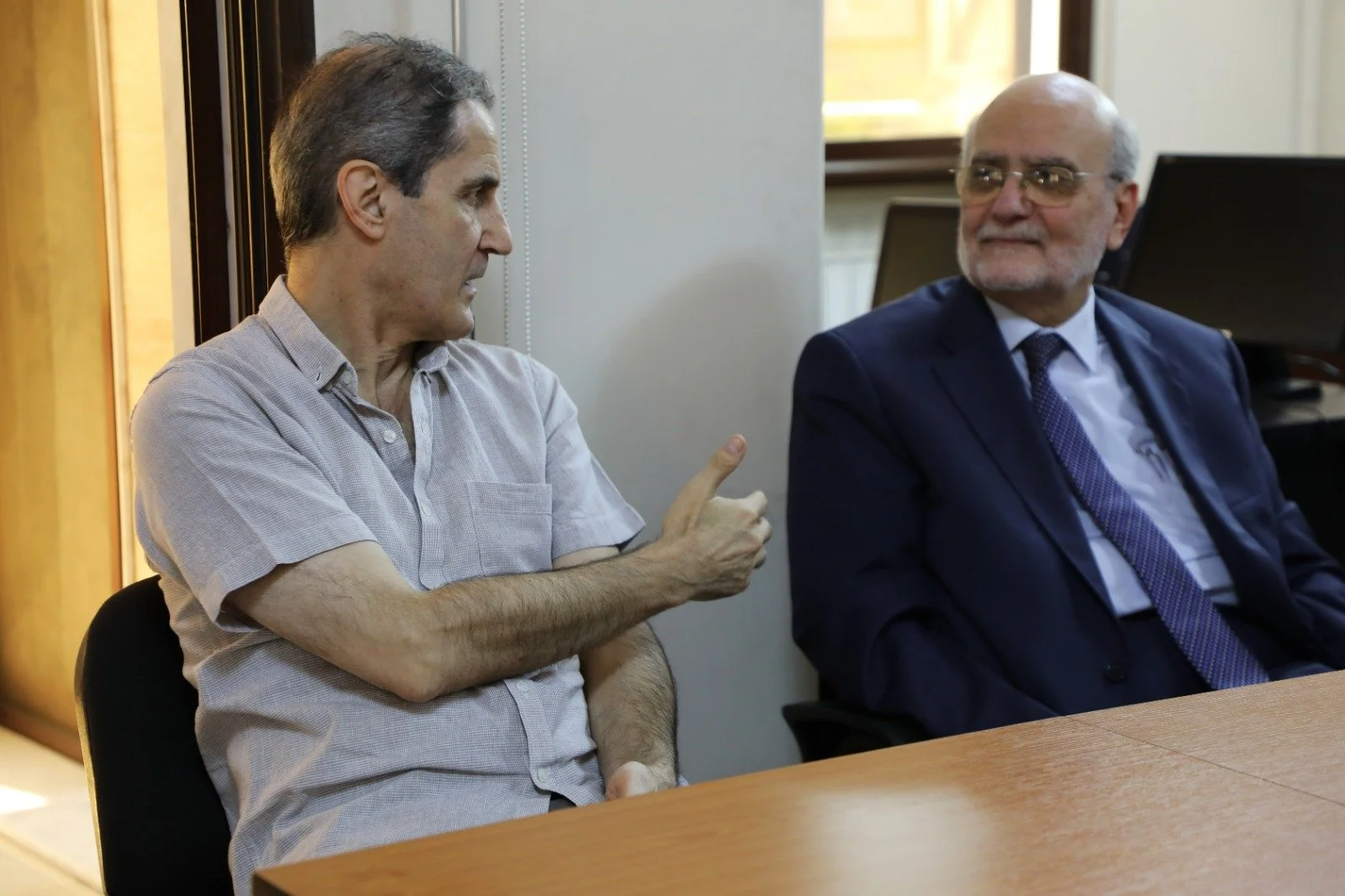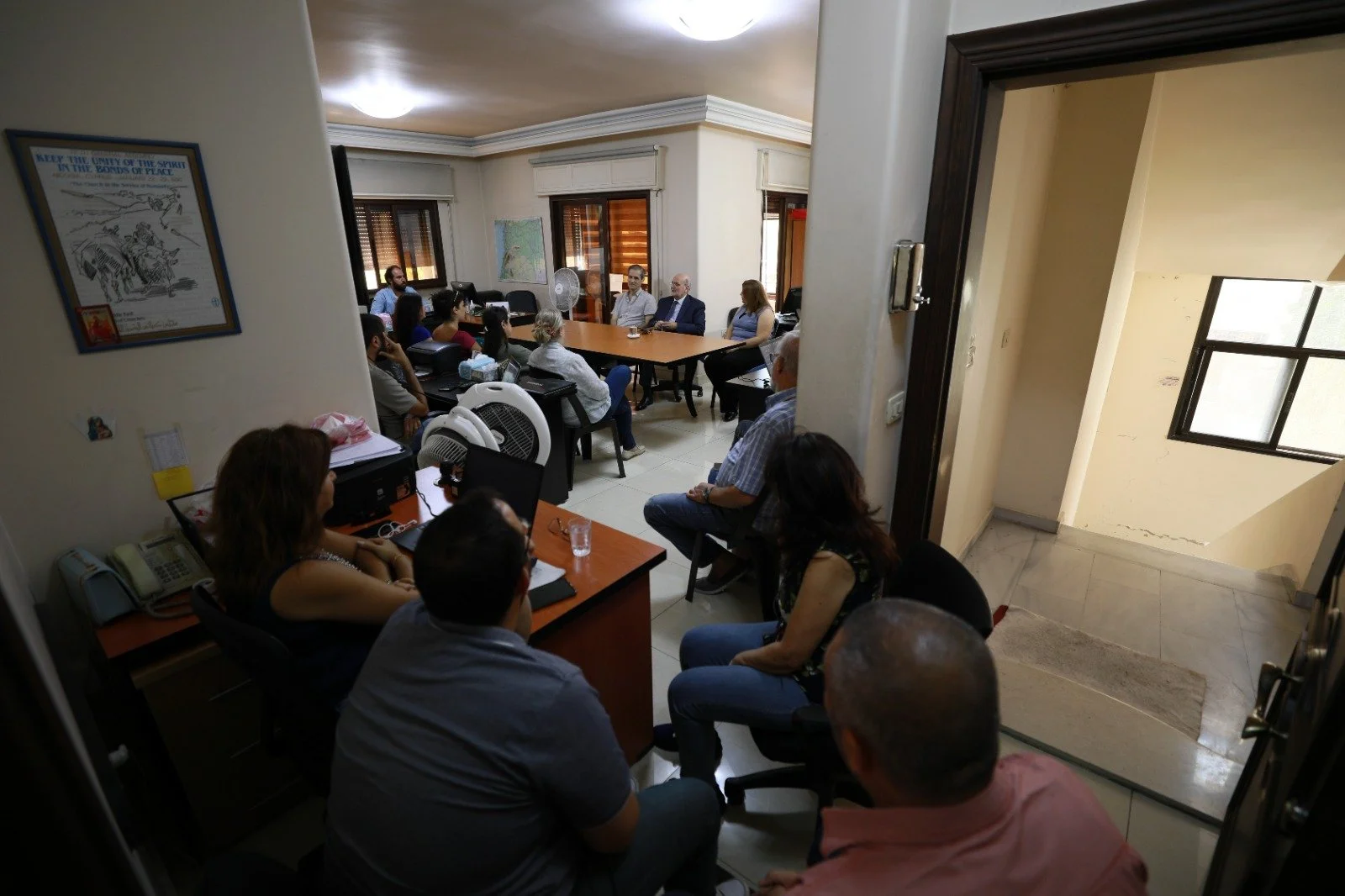The MECC Secretary General Dr. Michel Abs Visits the Council's Office in Damascus
You can find some photos at the end of the text.
Dr. Michel Abs, the General Secretary of the Middle East Council of Churches (MECC), visited the Council's Office in Damascus today, Monday, September 2, 2024. He was welcomed by Eng. Ghassan Shaheen, the Council’s Program Director in Syria, and the staff of the Council’s Office.
This visit to the Damascus Office is part of Dr. Abs’ tour in the Syrian Arab Republic to follow up on the activities of MECC and the implementation of its programs.
Eng. Ghassan Shaheen welcomed Dr. Michel Abs and congratulated him on his re-election as General Secretary for a second four-year term. He commended Dr. Abs' efforts in managing the Council over the past four years.
Dr. Abs then addressed the Damascus Office team, providing an overview of the goals and future strategies of the projects undertaken by MECC. Among these activities, the most significant project is the Church Agricultural Dimension Project, which involves rural housing complexes dealing with agriculture and crafts. The aim is to help the Church withstand Christian emigration, as providing housing and food reduces the likelihood of people considering emigration.
Dr. Abs explained the four dimensions of the Council's goals and strategies for the upcoming period. One dimension is the aspect of dialogue, as the Council is characterized with a high level of credibility with other religions that trust its work. Dr. Abs emphasized the importance of the Council's dialogue with other religions in order to better explain its role in the Palestinian issue and the ongoing bloody conflict there.
Another dimension is the networking aspect. Dr. Abs said, "This dimension is related to Christian unity because Christianity has diversified and taken different forms. The Council seeks to unify the Church through working and serving the other. The Association of Theological Institutes in the Middle East (ATIME) represents an important form of unity among Churches. Humanitarian work is another form of unity among Churches, and MECC aims to establish an association for Church humanitarian agencies."
Dr. Abs highlighted the crucial role of media in consolidating human values and spreading love and fraternity worldwide. He referred to the Council’s efforts to create an Ecumenical media network to unify efforts and cooperate on various media levels. On August 20, the Council held an Ecumenical media meeting with a group of media specialists from different Church Families and countries of the Middle East.
Dr. Abs also discussed the fourth dimension, which is intellectual and social monitoring. Through this dimension, MECC will sound the early alarm on foreign social phenomena that are imposing themselves strongly on the world and our culture and faith. He said, "We at the Council deal with the bearers of foreign phenomena and tendencies that we reject with love. The Council’s role is important in promoting values in our community, where Christianity originated. We have started holding seminars and will strengthen the role of community research to identify any phenomena alien or harmful to our culture, thereby sounding an early warning to protect our community and the world."
Dr. Abs emphasized the importance of increasing social cohesion through Churches, as crisis-stricken societies are fragmented, and without cohesion, fragmentation will increase.
He praised the efforts of the MECC staff in delivering humanitarian services to those in need in a manner that reflects the Council's slogan, "Service with Dignity," as nothing matches human dignity, which is part of our Christian culture. He clarified that the funding provided by the Council’s partners is a result of its effective and transparent performance in assessing community needs and implementing projects on the ground.
At the end of the meeting, Dr. Michel Abs answered inquiries from the Council’s staff at the Damascus Office and discussed with them the best ways to overcome obstacles and challenges to optimally deliver services to the people in need.


